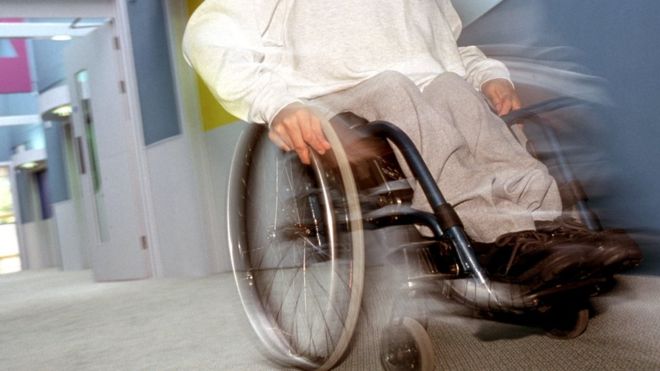Council cuts: Northamptonshire and East Sussex to offer only bare-bones service
Child social care and other core services face being slashed despite criticism from experts

A free daily email with the biggest news stories of the day – and the best features from TheWeek.com
You are now subscribed
Your newsletter sign-up was successful
Two councils in England have announced plans to strip local services to the “legal minimum” in order to deal with budgetary shortfalls.
Drastic cuts and widespread redundancies are expected to be approved by councillors in Northamptonshire as they meet today to discuss proposals to deal with a £70m budget shortfall, says the BBC.
The proposals are similar to those revealed last week by East Sussex County Council, which is facing a cash shortfall that could leave it bankrupt within three years.
The Week
Escape your echo chamber. Get the facts behind the news, plus analysis from multiple perspectives.

Sign up for The Week's Free Newsletters
From our morning news briefing to a weekly Good News Newsletter, get the best of The Week delivered directly to your inbox.
From our morning news briefing to a weekly Good News Newsletter, get the best of The Week delivered directly to your inbox.
Northamptonshire County Council leader Matt Golby said: “Unfortunately, there are going to be some very difficult decisions ahead for Northamptonshire as we work hard to bring our spending under control while doing our very best to protect services for the most vulnerable in our communities.”
The Government insists that the funding arrangements for local councils strike a necessary balance between relieving the pressure on local authorities and keeping tax bills down.
A spokesperson for the Ministry of Housing, Communities and Local Government told The Guardian: “We are providing local authorities with £90.7bn over the next two years to meet the needs of their residents. We are also giving them the power to retain the growth in business rates income and are working with local government to develop a funding system for the future based on the needs of different areas.”
Northamptonshire council’s financial collapse “has been portrayed by ministers as being down to chronic mismanagement rather than lack of government funding”, says the newspaper. But East Sussex “is regarded as a stable and well-run council, giving authority and credibility to its shock warnings of the consequences of underfunding”, The Guardian adds.
A free daily email with the biggest news stories of the day – and the best features from TheWeek.com
What services are under threat?
Northamptonshire council, which is technically insolvent, warned last month that it would probably be forced to reduce services for vulnerable adults and children. This triggered a warning from the Children's Commissioner for England, Anne Longfield, who said last week that there could be “catastrophic consequences” if such cuts went ahead.
Longfield told BBC Radio 4’s Today programme: “I’m extremely worried that the financial difficulties that Northamptonshire County Council are facing will mean that they are not going to be protecting the services for the most vulnerable children, which could have catastrophic consequences for those children.”
Radical cuts will also fall on road maintenance budgets, home-to-school transport, refuse services, museums and libraries.
Are any other councils taking similar measures?
The National Audit Office has said that up to 15 English councils could go bankrupt in the next few years as costs race ahead of resources, “especially in children’s services, which have experienced a surge in the number of at-risk young people being taken into care, and in services for vulnerable older adults”, reports The Guardian.
Last week, two families won a case against Bristol City Council over plans to reduce funding of special education needs and disability (SEND) services.
The High Court “ordered the council to reverse the cuts, with Judge Barry Cotter QC telling the local authority that it had acted unlawfully and there was no need for a reduction”, reports The Independent.
The judge said the council had “no regard” for children’s welfare and was only interested in balancing the books.
He added: “There is no evidence, from the extensive paperwork evidencing the defendant’s [council] decision-making process, that members of the council had any regard to the need to safeguard and promote the welfare of children, still less ‘actively promote’ children’s welfare, when making the decision to proceed with the proposed savings.”
-
 The environmental cost of GLP-1s
The environmental cost of GLP-1sThe explainer Producing the drugs is a dirty process
-
 Greenland’s capital becomes ground zero for the country’s diplomatic straits
Greenland’s capital becomes ground zero for the country’s diplomatic straitsIN THE SPOTLIGHT A flurry of new consular activity in Nuuk shows how important Greenland has become to Europeans’ anxiety about American imperialism
-
 ‘This is something that happens all too often’
‘This is something that happens all too often’Instant Opinion Opinion, comment and editorials of the day
-
 Why the number of children in care in England is set to rise
Why the number of children in care in England is set to risefeature Local authorities caught in ‘vicious cycle’ amid austerity cuts and lack of foster carers
-
 ‘Rave reviews for Rishi Sunak’s budget may age quickly’
‘Rave reviews for Rishi Sunak’s budget may age quickly’Instant Opinion Your digest of analysis and commentary from the British and international press
-
 Instant Opinion: BBC in trouble ‘because British TV isn’t as good as it used to be’
Instant Opinion: BBC in trouble ‘because British TV isn’t as good as it used to be’In Depth Your guide to the best columns and commentary on Monday 10 February
-
 ‘National scandal’ as 5,000 people die after benefits error
‘National scandal’ as 5,000 people die after benefits errorSpeed Read Government underpaid 70,000 claimants by £340m between 2011 and 2014
-
 Instant Opinion: ‘Why are Millennials so boring?’
Instant Opinion: ‘Why are Millennials so boring?’In Depth Your guide to the best columns and commentary on Monday 5 August
-
 Instant Opinion: ‘Tackling climate change may be easier than we think’
Instant Opinion: ‘Tackling climate change may be easier than we think’In Depth Your guide to the best columns and commentary on Friday 26 July
-
 Theresa May vows to end ‘postcode lottery’ for abuse victims
Theresa May vows to end ‘postcode lottery’ for abuse victimsSpeed Read PM announces legal duty for councils to provide help for victims and their children.
-
 British children facing Christmas homeless crisis
British children facing Christmas homeless crisisSpeed Read At least 130,000 youngsters will be living in temporary accommodation this festive season, a rise of 59% in five years